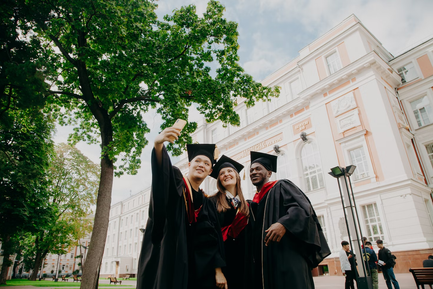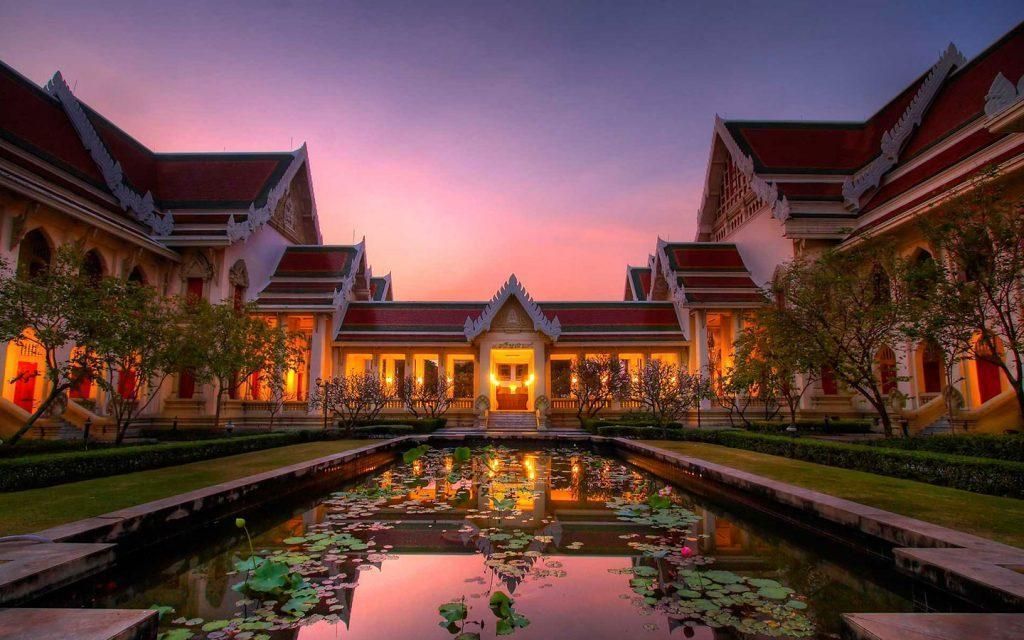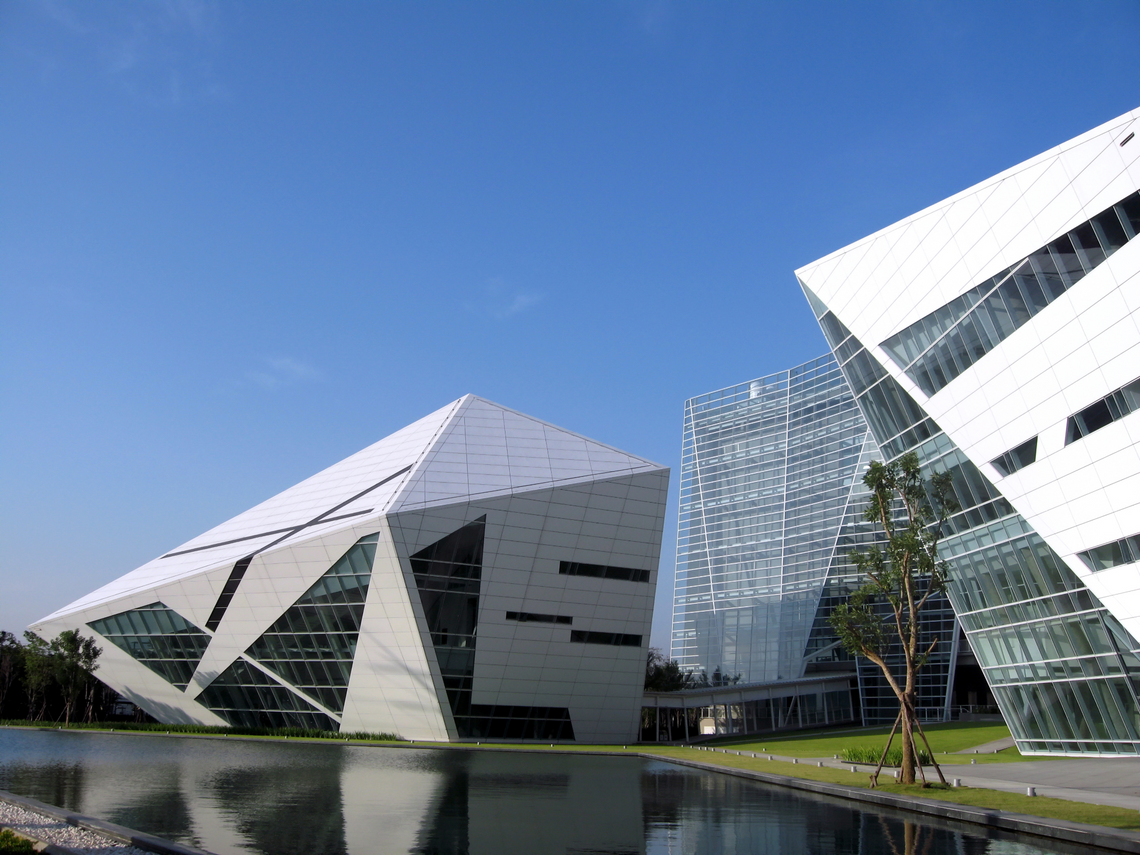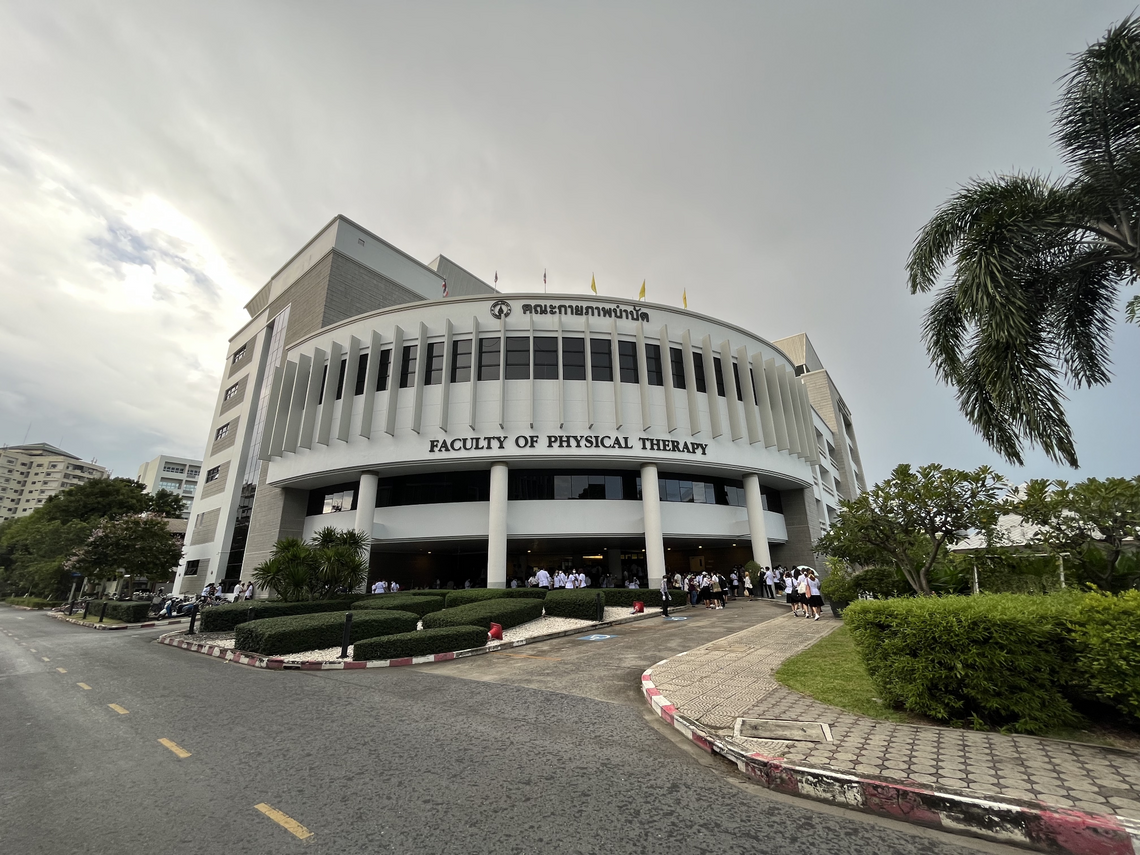
Apply to a foreign university with confidence
- Properly fulfilled documents
- Perfect motivation letter
- Support from a personal mentor
- Offers from several universities
Getting a degree in Thailand is suitable for those who are looking for affordable tuition and accommodation, a large selection of international programs with in-demand specialties, as well as relatively simple admission requirements.
Free consultation
Higher education in Thailand is a suitable option for those seeking affordable tuition and living expenses, a large selection of international programs with in-demand specializations, as well as straightforward admission requirements.
This article explores the distinctive aspects of education and employment in Thailand, opportunities for free education, and prospects of immigration after studying.

| Program | Duration | Min. cost per year | Avg. cost per year |
|---|---|---|---|
| Bachelor's | 3.5-5 years | 149 USD | 4,292 USD |
| Master's | 1-3 years | 1,192 USD | 4,384 USD |
| PhD | 3-5 years | 5,067 USD | 7,749 USD |
| Expense | Average cost per month |
|---|---|
| Student housing | 452 USD |
| Apartment rent | 573 USD |
| Public transportation | 33 USD |
| Internet | 22 USD |
| Food and other expenses | 303 USD |
| Private health insurance | Depends on citizenship |
| Study materials | 154 USD/semester |

Thai universities do not impose special educational requirements for admission. You can apply for your desired program after completing the 11th grade of high school.
The most convenient and reliable way to submit an application is directly through the university's website by clicking on the "Apply Online" or "Online Application" button.
Some universities may require applicants to undergo testing or participate in an interview. For example, Chulalongkorn University, the best institution in Thailand[3], has developed its own assessment test called CU-AAT, which is also used by other educational institutions in the country.
The application deadlines usually fall 3 months before the start of the academic semester. If the semester begins in the fall, deadlines are in March / April / May, while for the spring semester, they are in November / December / January.
International students are encouraged to arrive in Thailand at least 2 weeks before the start of classes. This provides ample time for registration, obtaining a student ID, accessing university Wi-Fi, securing housing (campus or apartment), and acquiring the necessary school uniform.
Universities with the prefix "raja" were formerly colleges that have been granted university status. This modernization trend aims to make higher education in Thailand's provinces more accessible. Admission to such universities is often easier compared to public or private institutions, and the royal prefix adds prestige to these educational establishments, symbolizing support from the monarchy.
For example, at Dhonburi Rajabhat University, you can pursue a bachelor's degree in Business English, which spans 3 years and does not require motivation or recommendation letters[14]. The total cost for the 3-year program is 7,690 USD, slightly exceeding the average annual cost of undergraduate education.
Bachelor's degrees are the first stage of higher education in Thailand, with programs usually lasting 4 years. However, disciplines like architecture and education may extend to 5 years, while dental surgery, medicine, veterinary medicine, and pharmacology will take 6 years of study. As a benchmark, 120 is the minimum credit requirement.
Many international programs offer a distinctive format known as Four-Year Double Degree Programs. Opting for this structure means receiving a bachelor's degree from two foreign universities at once. The first 2 years of study are spent at a Thai university, followed by the remaining 2 years at a partner university.
Over 115 programs are available for foreign students in English[6].
The average cost of bachelor’s education is 4,292 USD per year.
All documents require a notarized translation into English or Thai.
Vocational education in Thailand is available in both public (429 in total) and private colleges (484 across the country). These programs are designed to equip students with practical skills and working qualifications.
Professional education fields:

Master's degrees are the next level of higher education in Thailand, spanning an average of 2 years. To fulfill program requirements, students need to earn at least 36 credits[16].
More than 180 programs are available to foreign students in English[17].
The average cost of master's education is 4,384 USD per year.

PhD degrees are the third and final level of Thai higher education. On average, programs last 3-4 years. Students typically need to earn approximately 36 credits to complete their studies[16].
The first year involves coursework, laying the groundwork for subsequent advanced studies. A personalized dissertation program is assigned, tailored to the specific area of study. Research outcomes must be published in a recognized scientific journal.
Aspiring PhD students must meet several requirements:
An academic career at Thai universities usually begins at the "lecturer" level. Institutions set relatively high standards for foreign educators, requiring them to hold a PhD, whereas many other countries accept candidates with a master's degree.
Academic titles in Thailand:
| Lecturer | 8 USD/hour |
| Docent | 10 USD/hour |
| Associate professor | 11 USD/hour |
| Professor | 13 USD/hour |


At Thai universities, international students have access to grants and scholarships across all levels of study. Generous scholarships for bachelor’s programs can be discovered in the "Scholarships" section on university websites. As of 2022, there has been a unified scholarship program funded by the government of Thailand for master's programs. However, this scholarship is not available to citizens of certain countries.
Thailand Government Scholarships are accessible to students from many countries[18]. To qualify, applicants must demonstrate English proficiency, with the required scores varying among universities and faculties. A common requirement is IELTS 6.5 or TOEFL 80.
Scholarship coverage includes:
Key areas for obtaining a Thailand Government Scholarship include Climate Change, Food Security, other subjects related to the Sustainable Development Goals, and the Philosophy of Sufficiency Economics[20].
Scholarships can be found directly on university websites under the "scholarships" section. For instance, Chulalongkorn University provides the following programs for bachelor's, master's, and PhD students:
The application deadline for these programs is December 29th.
In Thailand, employment on a student visa is legally prohibited. However, there are some part-time job opportunities available to foreign students, specifically on-campus positions that are limited to 20 hours per week. To find suitable options, you can reach out to your supervisor or academic advisor for guidance.
Available on-campus positions typically include teaching and research assistants. Teaching assistants assist professors with various tasks such as checking homework, preparing classrooms or laboratories for lessons, helping students understand course material, and so on. Research assistants actively participate in research projects, which may involve gathering and organizing information on specific topics and assisting with documentation.
In these roles, students can earn around 149-238 USD per month, depending on their workload. However, these part-time jobs are usually available only during the academic semester, which is approximately 8 months per year — teaching and research activities are suspended during holidays.
Alternatively, explore opportunities as a volunteer teacher. English teaching is highly demanded in Thailand, and you can offer lessons to students who want to improve their language skills. While the pay for tutoring may be lower (around 6 USD per lesson), it offers greater flexibility and will not significantly impact your academic commitments. Plus, it provides valuable teaching experience.
If you decide to transition from a student visa to a business visa (category B) and apply for a work permit[7], you can officially seek employment while studying. You may want to consider available internships, as Thai universities often collaborate with major corporations such as Agoda, IBM, ExxonMobil, PwC, Procter & Gamble, Huawei, Chevron, Bangkok Bank, Siam Cement, and Michelin. Completing such internships not only provides valuable experience, but can also lead to a work permit sponsored by the interested company.


Thailand is experiencing a shortage of qualified personnel due to the emigration of young people. Consequently, the government is receptive to newly arrived foreigners who can fill these job vacancies. Education obtained at Thai universities plays a significant role in meeting the demand for skilled professionals. However, there is a list of professions reserved exclusively for Thai citizens. These occupations are typically related to national crafts such as wood carving, diamond or gem polishing, weaving, rice paper making, silk spinning, and similar disciplines[21].
According to the Ministry of Labor, there were approximately 2.9 million registered foreign migrant workers in Thailand by the end of 2019, constituting at least 7.6% of the workforce[22]. As Thailand grapples with an aging population, the demand for migrant workers is expected to persist well into the foreseeable future.
Popular professions in Thailand:
To qualify for Thai citizenship, the following criteria must be met:
The processing time for Thai citizenship applications ranges from 6 to 12 months, starting from the date of document submission.
60+ countries
we work with
$1,000,000 saved
by students through scholarships
6,400 offers
our students got